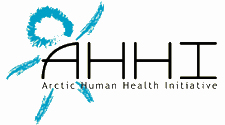Project Listing
Changing Environment & Human Health
Title: Public health in Russian Arctic: Analytical review for Russian Program of International Polar Year 2007-2008 (RAHR - Russian Arctic Health Review) ![]() - Progress update (pdf)
- Progress update (pdf)
Summary of Activity
The goal of the project is to assess the principal processes which determine the conditions of life and health of the people living in high-latitude territories of the Russian Federation, and to compare the main health indicators of indigenous and non-aboriginal population in Russian and in foreign Arctic by the beginning of IPY. The complex study will consist from the following major sections: 1. Appraisal of medico-demographic health indexes and their dynamics in 20-25 Russian Arctic cities for 10 years using WHO and WB criteria. Comparing the indexes with those for foreign Arctic. 2. Study the influence of climate warming on the health of circumpolar population. 2a. Collecting initial data on air temperature, concentration of pollutants, and daily cause-specific mortality will make it possible to assess the influence of high summer temperatures, and can be used to prognosticate high temperature attributed mortality. 2b. A pilot questionnaire survey will give us information on how aboriginal people perceive the climate change influence on their health, environment, and economy. 3. Analysis of quality and dynamics of modernization trends in the Russian Arctic, existing and emerging health risk factors for aboriginal and non-indigenous population. 3a. Evaluation the life style transformation’s stressing pressure by collecting psychological and medico-biological data in aboriginal communities. 3b. Study new trends in urbanization. Whereas the urban population of the Russian North is contracting, the number of living in cities aborigines grows. We plan to analyze the influence of urbanization upon ethnic and assimilation processes; and changes in population in highly and less urbanized northern peoples. 3c. Analysis of social, economic, and environmental factors affecting the diet of aboriginal people. We intend to assess the influence of the shift in hunted species on food composition; and the connection of population-genetic processes with the prevalence of the “metabolic syndrome”. 3d. Assess the alcohol-associated morbidity and losses in aboriginal and migrant population of the Russian North. Epidemiological alcoholization indexes will further be analyzed in connection to the population frequencies of ethanol-metabolic ADH1B*47His and ALDH2*2 alleles. 3e. Study demographic tendencies, and epidemiologic transmission’s peculiarity in aboriginal population. Collect the data on mortality, demographic and non-demographic increase, reproductive behavior, life longevity, and age-sex population composition for northern aborigines. 4. Comparison of consolidated medico-demographic indexes and health risk factors in Russian Arctic, northern Europe, USA, and Canada.
Contact:
Dr Boris Alexandrovich Revich
Institute of Economic Forecast of RAS
Moscow, Nakhimovsky Prospect, 47
117418
Russia
Tel: +7 (495) 129-1800
Mobile: no
Fax: +7 (495) 718 97 71
Email: revich@ecfor.ru
© 2006, Arctic Human Health Initiatives
All rights reserved.
